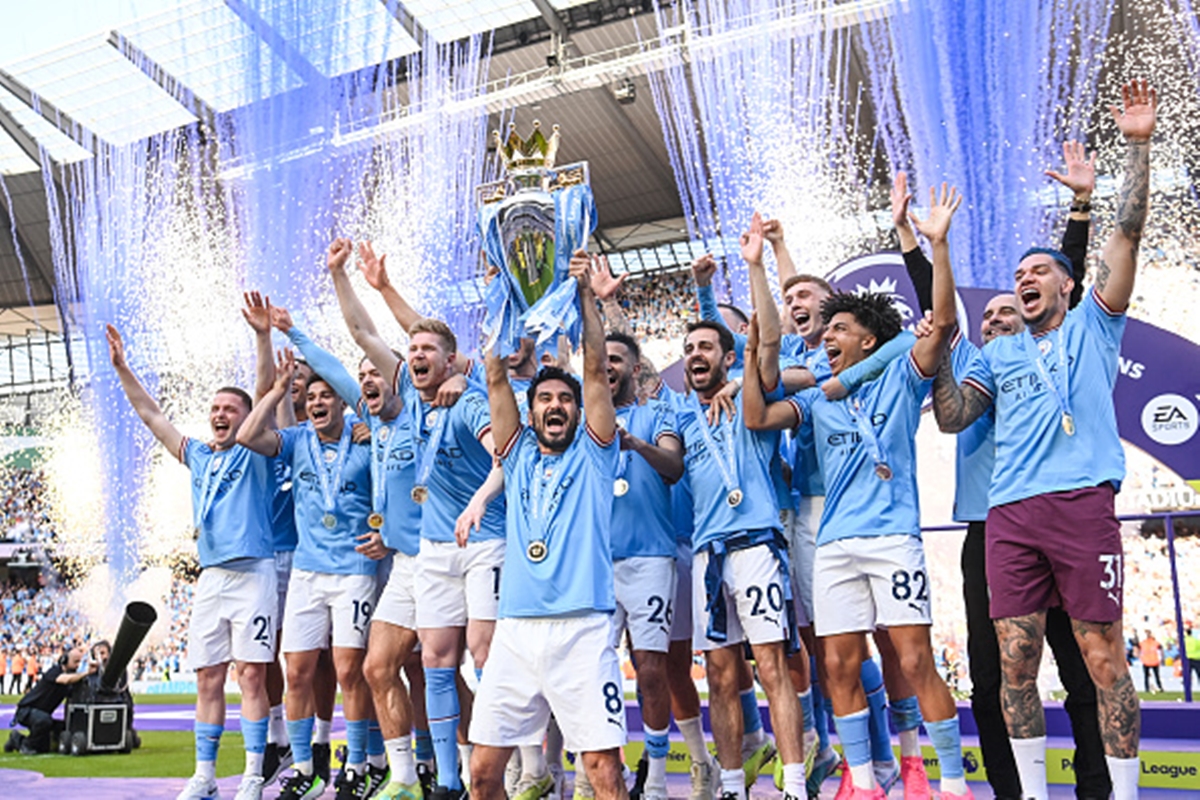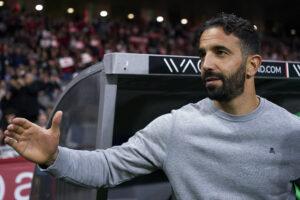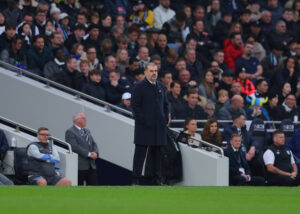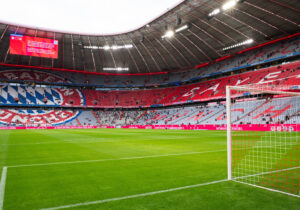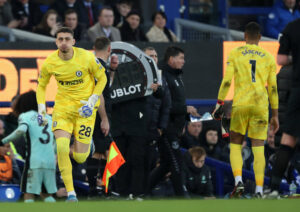For over 150 years, there have only been two forms of professional football: club football and international football. Now, in the wake of Manchester City’s Champions League demolition of Real Madrid, which was followed almost immediately by their completing a hat-trick of Premier League titles, an all-important question must be asked. Are they at the forefront of a new form of football, one that blurs or even completely erases the traditional distinction between club and international football?
A New Form of Football Needs A New Name
Where it Began
It was, of course, the purchase of Manchester City by Sheikh Mansour in 2008 that transformed them from virtual laughing stock – in 1999, when Manchester United were winning the Treble, Manchester City were fighting for promotion to the Championship, or second tier of English football – to the position they are in now, where they are on the verge of winning a Treble of their own.
And of course, Sheikh Mansour was not your traditional buyer of a football club, a supremely wealthy individual who sought to use football to promote themselves in the way that only football can, in the vein of a Silvio Berlusconi, who bought Milan in the mid-1980s, or even a Roman Abramovich, who bought Chelsea in 2003. No, he was effectively the representative of an entire country, or at least the leading figure in the seven-strong federation of small Middle East nations that makes up the United Arab Emirates. In effect, for the first time in history a country had bought itself a football club.
Read More: Romano: ‘Most Wanted’ Chelsea and Manchester City Target Now Expected to Break Huge Transfer Record
Fifteen years on, the consequences of that decision are becoming increasingly clear. As Jonathan Wilson, probably the pre-eminent contemporary football writer and historian, wrote in The Guardian this week, Manchester City’s 3-0 defeat of Real Madrid, the reigning European champions and record 14-time winner of the European Cup/Champions League, felt historic, marking the moment that a “petrostate” club finally overtook the traditional elite in football.
“Petrostate” club is one of the many names that have been used to describe the Manchester City phenomenon, which of course has been replicated at other clubs since 2008, notably at Paris Saint-Germain in 2011 (which was effectively purchased by Qatar), Newcastle in 2021 (effectively bought by Saudi Arabia, whatever the protestations to the contrary) and now, possibly, by Manchester United in 2023, which stands on the brink of being bought by either a Saudi Arabian petro-billionaire or a Qatari petro-billionaire.
However, none of the names have really stuck yet, which is not unusual when you are dealing with what is still a relatively new phenomenon. Among the other names that could be applied to this new era of football could be quasi-national football, whereby a country owns and runs a club, which then becomes its representative on the world stage; state-aided club football, whereby a country uses its resources to support a club; or even perhaps just hybrid football, “hybrid” being one of the great buzz-words of the 21st century, used to indicate a merging of traditionally separate or distinct entities (such as petrol-driven and electricity-driven cars).
Nevertheless, whatever name is eventually given to this new form of football, there is no doubt that it is new. And there is also no doubt that it potentially presents an existential threat to the two traditional forms of football, especially traditional club football.
Arsenal and Real vs Man City Is Club Football vs Quasi-National Football
That has been starkly displayed over the last week, on two different fronts. In the Premier League, Arsenal’s long and initially completely unexpected challenge to Pep Guardiola’s charges finally ground to a crashing halt, with successive defeats against Brighton and Nottingham Forest, meaning that City were Champions with three games to go. And in the Champions League, after many years (indeed, nearly the entirety of Guardiola’s reign at the club, since 2016) of flirting with inflicting a historic defeat on one of the traditional titans of club football, the Citizens finally achieved it with a truly comprehensive defeat of Real Madrid in the second leg of their semi-final.
So, the Manchester club have completed the first leg of the Treble and doing it so relatively easily will only strengthen their chances of winning the other two legs. They can now rest players for their two finals against Manchester United in the FA Cup and Inter in the Champions League. In both those finals, they will be overwhelming favourites, with their opponents likely to adopt a low block and try to hit them on the break. However, that is unlikely to work against a team of all-out attacking talent.
Read More: Champions League 2022/23 Semifinal Fixtures and Betting Odds
And beyond the immediate triumphs that lie ahead over the next few weeks, they are on the verge of truly historic domination, at least in England if not in all of European football. Having won three Premier League titles in a row, they now have the historic opportunity to win a fourth league title in England in succession. In the century and a half of English professional football, no club has done that before – not Herbert Chapman’s all-conquering Arsenal side of the 1930s, not the great Liverpool side of the 1970s and 1980s and not even Alex Ferguson’s mighty Manchester United side of the nineties and noughties. And yet whatever happens this summer, including a buyout of Manchester United by another state-backed billionaire, Manchester City will be firm favourites to make it four in a row next season.
If they do achieve a fourth English top-flight title in succession, any claim that the Premier League is the most competitive league in the world will be exposed as absolute hogwash. By being backed by an entire state, the Citizens will have broken the long-established history of English football, whereby a once-dominant team is eventually challenged and overtaken by another team, and established themselves, perhaps permanently, as the dominant team in football’s mother country. And that is to say nothing of what they might do in Europe if they can finally win the Champions League this season.
What Are The Possible Solutions To The Domination of State-Backed Clubs?
Traditionally successful clubs both in England and across Europe, from Arsenal to Real Madrid, are rightly wary of what will happen next. If Manchester City do manage to impose themselves as the dominant side in both England and Europe, there is a real possibility that even the supposedly biggest clubs will no longer be able to compete with a club that is backed by an entire country, and not just a poor country like Rwanda (which, of course, sponsors Arsenal’s shirt sleeves) but one of the richest countries in the world.
If that does come to pass, there will surely have to be radical steps to try and restore some competitive balance to club football, such that state-backed clubs like Manchester City, or Newcastle or possibly Manchester United, do not completely dominate non-state-backed clubs like Arsenal or Liverpool, or even Real Madrid.
The only possible answers might come from across the Atlantic, where the controls evident in the major U.S. sports (especially American football and basketball) have been so strong and so rigorously enforced that they have been able to stop billionaires from engaging in the kind of financial arms race that we are now seeing in European football. Among the most important of those controls, which are all completely absent from European football at the moment, are: one, an all-powerful sporting commissioner, who is charged by the owners of the clubs to have the decisive casting vote in any debate or disagreement; a central clearing house for all major financial transactions between clubs, such as trades (in the U.S.) or transfers (in Europe), to ensure genuine financial fair play; and, most radically of all, the introduction of play-offs, even in domestic competition, to offset the natural advantages that having a huge squad give a club over a whole season, as has been demonstrated by Manchester City in relation to Arsenal at the end of the season.
These are radical proposals that will certainly not be easy to implement; indeed, they may ultimately prove to be impossible. But without them, there is a very real danger that the quasi-national/state-backed/hybrid clubs of football’s new age will end up totally dominating, and therefore ultimately destroying, club football.


